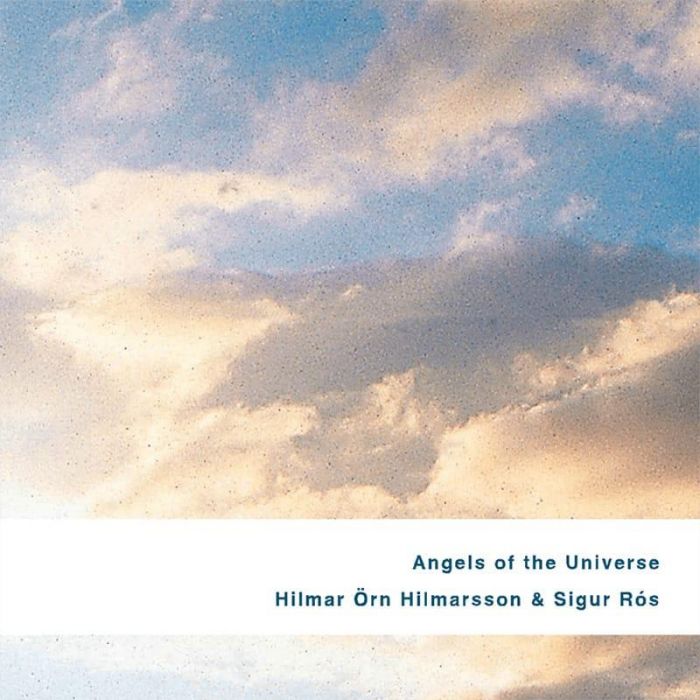Angels of the Universe by Hilmar Örn Hilmarsson, Sigur Rós (Review)

Fridrik Thor Fridriksson’s Angels of the Universe has been hailed as the greatest Icelandic film of all time, which doesn’t surprise me. Granted, I haven’t seen the film, but if you’ve ever seen Children of Nature, you’d realize the man’s ability for capturing beauty on film is quite special. But much of what made Children of Nature so magical was its score, a haunting and unspeakably sad piece of music that still ranks as one of the most beautiful recordings I own. And for Angels of the Universe, Hilmarsson again creates a lush mood piece. And oh yeah, Sigur Ros contributes two songs.
Angels of the Universe looks at a man struggling to cope with his growing insanity. As such, you can bet the score isn’t going to be too terribly upbeat. Unfortunately, it lacks much of the depth and power that Children of Nature’s score had, opting instead for a softer and sometimes surreal approach. Much of the music consists primarily of Hilmarsson’s lush synthwork and gentle guitars, as on “Approach I Dream.” But Hilmarsson’s true strength lies in his use of strings. Though not as searing or dramatic as those on Children of Nature, they add an ethereal longing to the music, fitting for a film about a man trying to regain his peace of mind.
There are times when the album deviates from its pretty side. “Over the Bend” finds Hilmarsson layering glitchy, drum n’ bass-esque rhythms over his synths and strings, fading the two in and out of each other for a vaguely disorienting effect. With its free jazz-like drumming and distorted electronics, “Relapse” conjures up scenes of the movie’s protagonist doing just that, of falling back into a violent psychoses. And “Helpless” is full of ominous, disembodied voices and swirling synths. It’s at these points where you really wish you could see what was going on in the movie, just to see how these darker pieces fit into the whole picture.
In a sense, that’s the score’s biggest drawback. You get the feeling that, in order to truly appreciate this music, you need to see the movie. Otherwise, you’re really missing out on something. On the other hand, the score for Children of Nature stands solely on its own. Seeing the movie certainly helps, but the score can be appreciated as its own entity.
Now, if you’re looking to buy this soundtrack just to have the Sigur Rós tracks, and you already own the “Ny Batteri” single, don’t bother. But for those who don’t, I can’t think of a better reason to lay down the cash. “Bium Bium Bambalo” is a traditional Icelandic folk song that has been passed on for generations; this is the first time it’s been recorded. “Death Announcements and Funerals” is based on a song played on Icelandic radio before funeral announcements are read. Both songs are among the best and most solemn pieces the band has ever recorded, with “Bium Bium Bambalo“ ‘s bowed guitars giving Hilmarsson’s strings a run for their money and “Death Announcements and Funerals“ ‘ organ doing its darndest to raise the dead.
Perhaps not too surprisingly, Sigur Rós’ contributions outshine nearly everything else on the soundtrack. In retrospect, Hilmarsson’s actual score is certainly beautiful enough, but it lacks the power and intensity of Sigur Rós’ songs. To truly get a feel for what Hilmarsson is capable of, I encourage you to find his score for Children of Nature. It might take some effort, but it’s certainly worth it. As for me… I’m just going to have to wait patiently for the film to reach my neck of the woods. Only then will I probably get the music’s full impact.